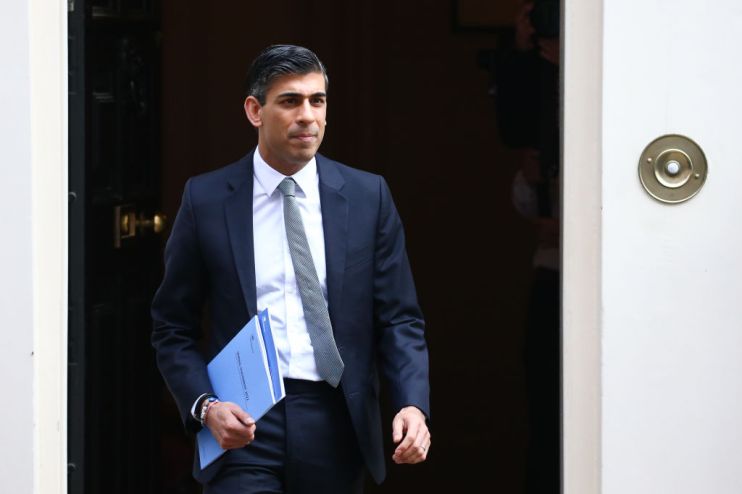Sunak warns energy companies ‘no option is off the table’ amid calls for a windfall tax

Domestic energy companies could still face a windfall tax this year, if they fail to invest in the UK’s energy sector, warned Chancellor Rishi Sunak.
He told the House of Commons that the government does not “believe windfall taxes are the simple and easy answer for every problem.”
However, it remains “pragmatic” about the prospect of new levies, with Sunak calling on energy giants to honour pledges to invest significantly ramping up domestic energy production.
Sunak said: “What we want to see are energy companies who have made extraordinary profits at a time of acutely elevated prices, investing those profits back into British jobs, growth and energy security.”
“But as I have been clear, and as I have said repeatedly, if that doesn’t happen soon and at significant scale, then no option is off the table.”
Energy firms such as Shell and BP have reported record underlying profits from trading during the first three months of the year, powered by record oil and gas prices.
Shell revealed quarterly profits of $9.13bn, and has expanded its shareholder buyback scheme to $8.5bn, while BP has recorded earnings of $6.2bn and has upped its dividends to around $6bn this year.
This has reignited calls from the Labour Party for one-off £1.2bn levy on North Sea oil and gas companies, which would contribute towards proposed £600 savings for low-income households grappling with spiralling energy bills.
The party is forcing a vote today to amend the parts of the Queen’s Speech which deal with “tackling the short-term and long-term cost of living increases”, which includes a policy on further taxing energy producers.
However, the measure has been opposed by Downing Street, with Prime Minister Boris Johnson concerned it could deter investment into the domestic energy sector.
The government is keen to ramp up domestic power generation, and recently unveiled ambitious targets to boost renewables, nuclear and North Sea oil and gas exploration as part of its energy security strategy – as it looks to reduce its reliance on overseas buyers following Russia’s invasion of Ukraine.
Shell has committed to investing £25bn by the end of the decade in the UK energy sector, while BP has pledged to spend £18bn on domestic energy projects.
Currently, there is already a 40 per cent special corporation tax on the North Sea, which is more than double the rate paid by other companies.
Meanwhile, the Office for Budget Responsibility has predicted it will raise £21bn between 2021-25, averaging £4-5bn a year – a 740 per cent increase on returns between 2015-20.
Nevertheless, Business Secretary Kwasi Kwarteng has written to both BP and Shell calling for the firms to honour their spending commitments.
There are also reports of rifts in the cabinet over the prospect of a windfall tax, with Sunak being more open to the concept than Johnson.
Meanwhile, chair of the Treasury Committee Mel Stride told BBC yesterday he felt there was a case for a “one-off windfall tax.”
He argued that while he would normally oppose it, the current “extraordinary circumstances” meant there was a case for looking at the levy to protect struggling households.
Chancellor under pressure to provide more support to households
Alongside his comments on the windfall tax, Sunak told the House of Commons that it was was inevitable households would face continue to face challenges.
The Chancellor argued that the deepening cost-of-living crisis reflected global pressures from the pandemic, supply chain difficulties and Russia’s invasion of Ukraine – which have powered energy prices and caused inflation to spike.
He said: “There is no measure any government can take, no law we can pass, that could make these global forces disappear overnight.”
“No honest Chancellor could stand here and promise prices will not rise further, or that the government can carry every extra pound in people’s bills.”
He also hit back at claims no help was available, describing the accusations as “both misleading and irresponsible.”
Following the announced hike in the consumer price cap to nearly £2,000 per year in February, Sunak rolled out to a £9bn rebate scheme providing households with a £200 saving to energy bills – which would then be paid back as prices ease.
He also committed to £150 write-offs for council tax in homeowners living in properties banded A-D.
However, with Russia since invading Ukraine – causing oil and gas prices to spiral to historic highs – he has been under more pressure to announce new measures.
While Sunak recently pledged to cut fuel duty by five pence in the latest Spring Statement, he has held off on any further financial packages for energy users before the price cap is updated again October.
Separately, Cornwall Insight has published its latest forecasts for the proposed quarterly price cap – and is predicting the cap could rise to £2,600 this autumn and maintain that painful peak in January during the depths of winter.
This follows reports from the energy specialist that high prices will be baked into the market for the next three years.
Continued elevated prices will make it increasingly difficult for the Chancellor to rebate bills and spread costs over time .